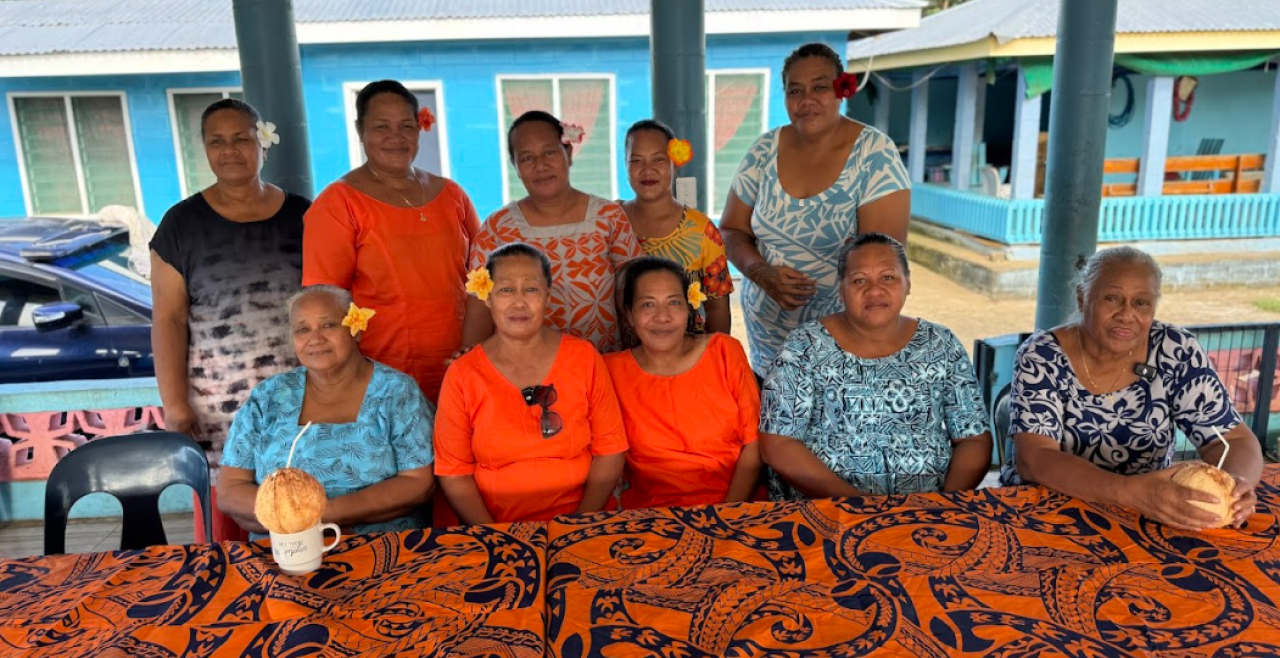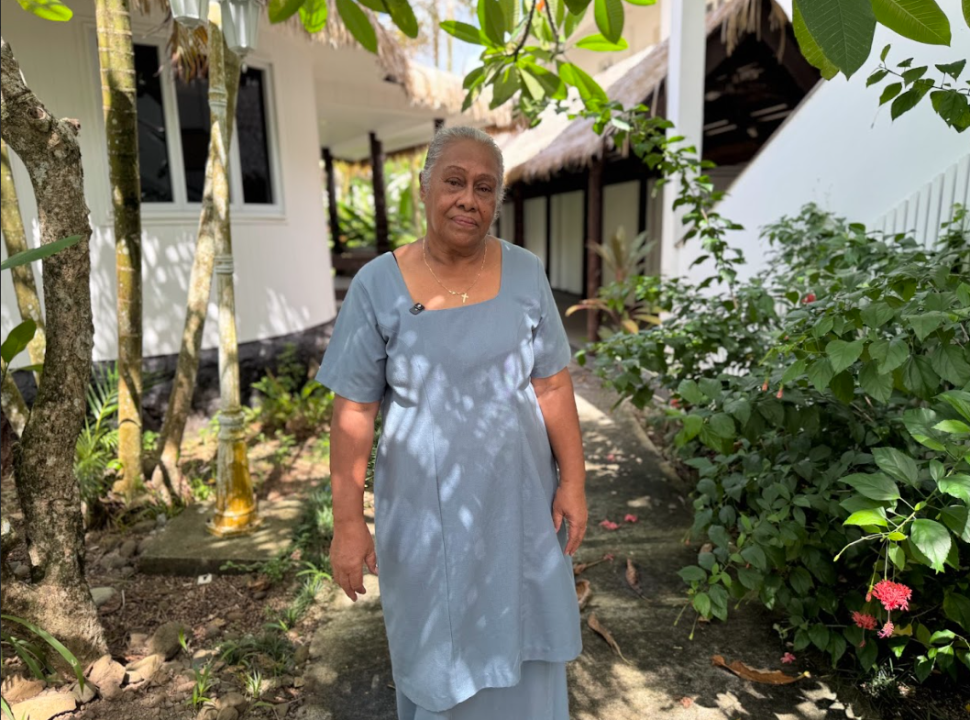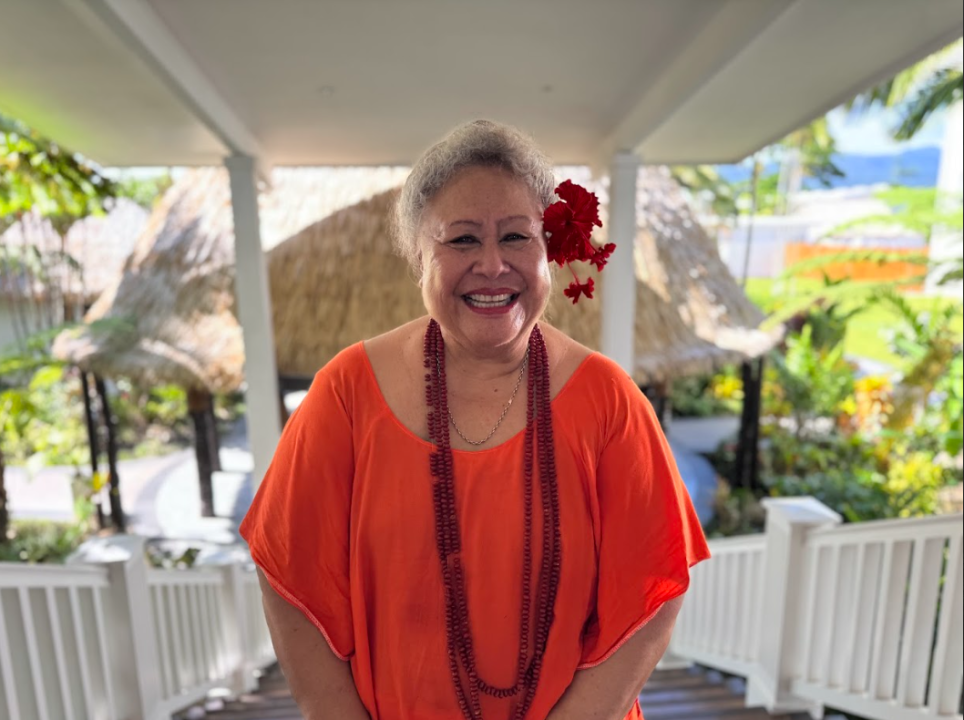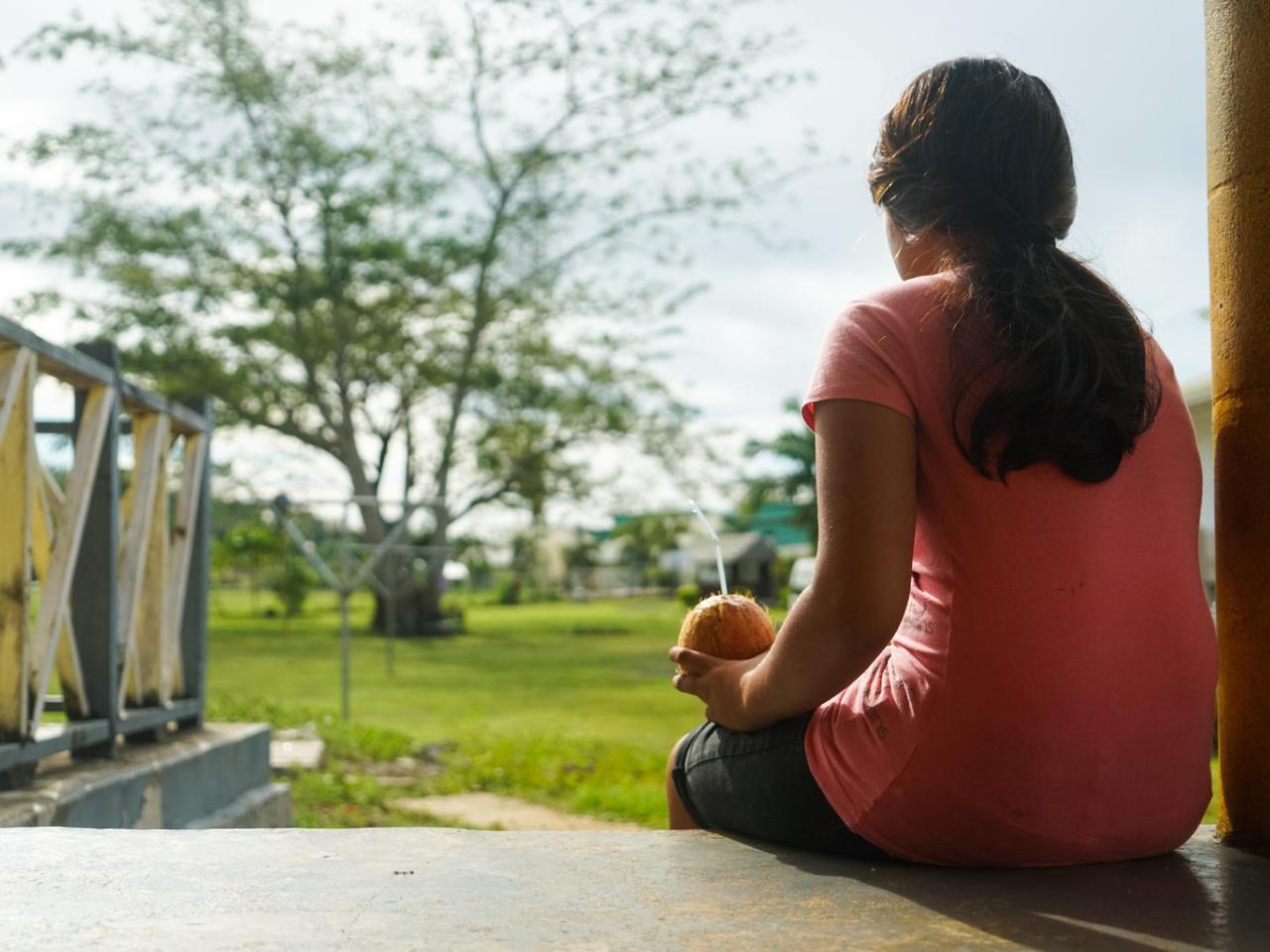“It was the sort of thing you don’t talk about” - Samoan women end the silence around gender-based violence and hold perpetrators to account

VAILELE, Samoa – In Vailele, 15 minutes south-east of the Samoan capital of Apia, nine people are gathered in a large green fale to discuss the village’s priorities and concerns. It’s the same place where the village council meets – except this time, it’s only women who are at the table.
Two children play on the surrounding lawn as local resident Taufanua Lemanu, 67, explains how the village has been integrating gender-based violence prevention into its traditional governance.
“The biggest plus side of the Spotlight Initiative programme is having the women working with the matais (chiefs) against violence." - Taufanua Lemanu, 67
“The biggest plus side of the Spotlight Initiative programme is having the women working with the matais against violence,” says Ms. Lemanu. “If anything happens to the women and children, they can report it to the village council or the police.”
“We try to be the first help to families, if we’re the nearest to [a dispute]. Anything serious, we tell them to bring it to the council or take it to the police.”
Reporting violence to the village council is an important tool for holding perpetrators accountable, especially in rural areas where police support may be limited and day-to-day life is governed by the matais. But it wasn’t always this way. In fact, even discussing gender-based violence was once considered taboo.
“It was more or less something new [to talk about gender-based violence],” says Pamela Sua, Secretary-General of the Samoa National Women’s Council. “It was the sort of thing you don’t talk about openly. You talk about it with your husband, your own immediate family … Now, people talk about it openly and the village council welcomes it because they need to know what’s going on in families and in villages.”
Vailele was one of 15 villages across the islands of Upolu and Savaii to participate in training provided by Samoa’s National Council of Women with support from UNDP and Spotlight Initiative. More than 300 women took part in transformational leadership, which integrated information on women’s rights, violence prevention and how to support survivors of violence.
"We wanted to turn conversations into a way to help each other [and] ensure there is somebody in the village who can help as a first responder." - National Council of Women Technical Adviser, Palanitina Tupuimatagi Toelupe
National Council of Women Technical Adviser, Palanitina Tupuimatagi Toelupe, explains that they used leadership training sessions as well as community dialogues to create spaces where women could speak safely and openly about their challenges and experiences. These community conversations were the primary focus of the National Council of Women’s Spotlight Initiative activities.
“We get them in small groups and give them specific questions to answer: Why do you think gender-based violence is happening in your community? How do you purport to address it? … Who do you go to when you need help?” says Ms. Toelupe.
“People would normally talk about [violence] in the context of gossiping – somebody was beaten up or somebody was hurt or somebody’s breaking up,” she says. “We wanted to turn those conversations into a way to help each other [and] ensure there is somebody in the village who can help as a first responder.”
Their goal was to equip each woman with the skills to return to her village and lead her own conversations around combatting violence.
Samoa’s National Council of Women facilitated dialogues for different cross-sections of society in order to raise awareness and create communities that would be more receptive to women’s advocacy. More than 180 dialogues took place across 18 villages, including with church congregations, youth groups, men and boys, and marginalized groups such as women and girls with disabilities. In addition, conversations took place at four national forums.
Critically, they used traditional modes of storytelling such as song, dance and short sketches to spark conversation. “We found that the traditional learning methodologies are the best way to reach out to them and get them engaged,” says Ms. Toelupe. “[We were] in no way imposing any kind of technical approach.”
“Our women have their own capacities to manage their families, make decisions, and we should build on that rather than coming down with didactic, classroom-type approaches,” she says, adding that this style of engagement was what made women feel most comfortable.
In Vailele, women who had participated in transformational training advocated for the introduction of village by-laws that would allow women to bring any concerns they had directly to the council and introduce mechanisms for holding perpetrators of violence accountable. These by-laws were supported by the matais in Vailele, as well as nearly all other villages that took part in the programme.
“A man who raises a hand [to a woman] is penalized by the village and [the survivor is] encouraged to go to the police.” - Secretary-General of the Samoa National Women’s Council, Pamela Sua
“A man who raises a hand [to a woman] is penalized by the village and [the survivor is] encouraged to go to the police,” says Ms. Sua.
Though Spotlight Initiative’s first phase in Samoa ended in 2023, Ms. Lemanu says the changes that were made have continued. Women now have an established channel to directly raise their issues with leadership and are able to more readily shape village governance and policy. More broadly, stopping violence is seen as everyone’s responsibility rather than a private family matter. Most importantly, she says, the village feels safer.
“We hope that we have planted the seed of primary prevention,” says Ms. Toelupe. “That’s what I hope: that the women will be protected, the men become good husbands, and that the boys are taught to take care of the girls and vice versa.”
In Samoa, Spotlight Initiative was implemented by UNDP, UNICEF, UN Women, UNESCO and UNFPA.
By Anne Fullerton



